mercedes gp cursos gratis maquillaje innovacion
"Search Engine Journal" - 6 new articles
- Google Adds Blue Dots to Product Search Results
- I Admit It – These Videos Taught Me a Few Social Media Tricks
- 15% Off Search & Social Spring Summit for SEJ Readers!
- My "Couch Talk" Local Marketing Interview With Chuck Reynolds
- 3 Tools to Analyze the Sentiment of Your Brand Social Mentions
- Picking Wise Search Projects
- More Recent Articles
- Search Search Engine Journal
Google Adds Blue Dots to Product Search Results
Just a quick update to inform you that if you're using Google's product search, whether on your computers or mobile devices such as iPhone or Android phones, you can now check whether a particular product is in stock on a store nearby. You can check out the product's availability by clicking on the "blue dot" included in the search results.
This is particularly useful if you're out on the street and saw something which you might want to buy. You can just search for the product on your mobile phones, and if Google mobile search returns a search result with a blue dot, you can check it out to find out where you can buy the product. You can also see the distance of the nearest store from your current location.
Some popular retailers are already participating in the said feature including Best Buy, Sears, Williams-Sonoma, Pottery Barn or West Elm.
To try this feature, point your iPhone, Palm WebOS or any Android phone to google.com, tap on the "more" link and then choose "shopping" from the options. Alternatively you can check out the "shopping results" section from the Universal Search results provided by Google mobile search.
Check out the SEO Tools guide at Search Engine Journal.
Google Adds Blue Dots to Product Search Results
I Admit It – These Videos Taught Me a Few Social Media Tricks
I have been enrolled in the Market Motive social media online course for close to two months now. Each week I have been given a social media topic and have been responsible for viewing a certain number of films which go into detail about the topic being taught. There have been a wide range of social media topics such as a week dedicated to Twitter and another dedicated to Youtube.
Personally, going into the course I thought I was pretty familiar with the social media areas I was anticipating studying. I was excited to learn more of course, but didn't have the highest of hopes. I honestly thought it would be nice to have a recap on the social areas I work with daily and after a few months of reiteration, I would obtain a certification to show off my knowledge.
I have to say my original thoughts were narrow minded. I have been continuously surprised at the insight I am gaining each week. Until now, I have been responsible for watching videos each week and partaking in conference calls with the faculty.(The course takes a turn now and the responsibilities change but I will write about all of that in a few days). The videos have each had such detail. They are unique to the faculty members who make the videos and specialize in the areas they are teaching.
Video Topics
A small amount of the material covered
Blogging for Business
Permalinks, RSS feeds, key word longtail , pitching check list
Video & Youtube
Popular categories, channel, market share
Viral Marketing
Brand, conversion, campaign styles, viral themes
Social News Networks
Do's and don'ts across various networks, strategies to becoming more successful on each
Appropriate business decisions, tools, connecting on and offline, tracking
Flickr
Titles, tags, descriptions, search engines and Flickr
How to utilize Facebook for your business with Facebook connect and ads
Advertising on LinkedIn, groups
Online Press Releases
Wire Services, measurement, Keyword positioning
Market Motive resources that have been provided to me and that have impressed me throughout each week's video viewings:
1) Examples of useful books to buy pertaining to the areas being taught that week which are based on social media current events and practices.
2) Informative commentary (humorous when applicable and serious when appropriate)
- Current
- Authoritative
- Timely
3) Graphs
4) Tools that the faculty use and recommend
- Seo plug ins
- Twitter tools
- Better headlines
- Tracking your Brand
5) Viral Marketing Brainstorming Checklist
6) Pitching check list
Brief Video information for each week:
1) Length of each video is provided
2) 2-7 videos necessary to watch each week
3) Average 25 minutes per video
- Viewings do not have a specific deadline but rather anticipated due dates which are flexible. They are listed as an ideal due date but it is up the student to get things done in a timely manner. Weekly meetings with the faculty help ensure that students are on track and are not missing any points.
4) One Quiz to follow all videos combined for the week
- The quiz each week is just for practice. A grade is assigned but does not count toward the overall grade. They are meant as preparation for the final exam and reiterate the material in the videos. The quizzes help make sure the students have understood what is being portrayed in the videos.
Check out the SEO Tools guide at Search Engine Journal.
I Admit It – These Videos Taught Me a Few Social Media Tricks
15% Off Search & Social Spring Summit for SEJ Readers!
I am very happy to announce the countdown to Search & Social Spring Summit 2010, the official search marketing and social media conference of Search Engine Journal!
Search & Social Spring Summit 2010 is the second annual conference from Search & Social, the team behind Search Engine Journal, DailySEOTip, IMBroadcast and various other search marketing projects. With a lineup of speakers and experts that includes Search Engine Journal editors and some of the sharpest minds in the search marketing industry, Search & Social Spring Summit 2010 is a CAN'T MISS conference you really must attend.
Search Engine Journal is also offering a special added discount to our readers! Just enter the code sej when you register and you will save 15% off our ticket price of only $525!
- Attendees can expect to learn, at this affordable conference, the latest trends and successful marketing approaches by speakers. Furthermore, the theme of the Search & Social Summit Conference Series is INTERACTION and networking. Not only will you listen to informative presentations, but you will also be able to network and interact with the moderators, presenters and sponsors during and after sessions.
- The conference will not just be two days of sessions and networking, but Search & Social will also provide 3 meals a day and plenty of snacks for all attendees. We will open each day with a breakfast buffet, a lunch, group dinner & happy hour, and parties & networking events that run all night! Search & Social will keep you fat & happy during the conference with free food, open bars (special happy hours each night) and a bar & refreshments in the conference room.
- With a waterfront view and in an air-conditioned outdoor complex, it will be exclusive to the first 120 registrants. This allows a smaller and more relaxed atmosphere where attendees can network and market their companies on the spot. This is not to mention the 50+ business contacts that they can walk away with at the end of the conference. There will also be informative advanced material and a Q&A forum to push it further.
- Chris Winfield, Todd Malicoat, Brent Csutoras, and Rae Hoffman will be returning to the podium with topics such as Facebook, Twitter and Your Business and Link Building Tactics. And of course the founders of Search & Social; Dave Snyder, Loren Baker and Jordan Kasteler, will be sharing some researched SEO and internet marketing strategies.
- The Search and Social Spring Summit 2010 will be held at the Doubletree Guest Suites in Tampa, FL on May 3-4, 2010. This two-day conference is a premier forum that will bring together a search marketing community who are eager to learn and open to networking with other like-minded individuals.
REGISTER TODAY for Search & Social Spring Summit! But don't forget your Search Engine Journal coupon code sej when you register and you will save 15%!
Check out the SEO Tools guide at Search Engine Journal.
15% Off Search & Social Spring Summit for SEJ Readers!
My "Couch Talk" Local Marketing Interview With Chuck Reynolds
For those of you that do not know Chuck, he has a great deal of experience with geo games as well and other geo apps, local search and marketing, and is not only a marketer but a heavy engaged user of all the services he talks about.
I wanted to interview him about businesses using local social networks such as FourSquare, (because he is a very active user) and help share some insight to those business owners wondering how to use. You can follow Chuck Reynolds on Twitter here.
Local Marketing For Small Business Couch Talk, Yelp & Foursquare from Chuck Reynolds on Vimeo.
Matt Siltala, owner of Dream Systems Media shares his love and passion for SEO and all things social on his Internet marketing blog.
Check out the SEO Tools guide at Search Engine Journal.
My "Couch Talk" Local Marketing Interview With Chuck Reynolds
3 Tools to Analyze the Sentiment of Your Brand Social Mentions
Sentiment analysis is something very new and immature. Sentiment analysis allows you to identify general attitudes towards your brand (or a product).
The goal of sentiment analysis is to assign a given social media comment with a degree of association to three basic categories: positive, negative or neutral.
1. Social Mention
Social mention is always my first choice when it comes to the sentiment analysis. It allows to search in multiple categories including:
- Blogs;
- Q&A sites;
- Twitter;
- Social bookmarking sites;
- Images;
- News, etc.
Socialmention's sentiment is "the ratio of mentions that are generally positive to those that are generally negative." They use textual analysis, emoticons, symbols to analyze the sentiment.
While many people call it flawed, SocialMention's sentiment analysis is as good as you are currently able to get from a machine.
Socialmention's sentiment ratio:
Socialmention's sentiment distribution:
2. AlertRank Sentiment Analysis
AlertRank, a tool I reviewed just a few days ago, is a web based utility that adds some really great features to Google Alerts.
It allows you to configure the sentiment manually by clicking an icon next to each Google Alerts result:
After that the average sentiment is visualized via a nicely-looking graph:
Twitter Sentiment Analysis
With Twitter real-time search, sentiment analysis has become a particularly hot topic. Here are 4 free, registration-free services that can help you analyze Twitter sentiment of your brand:
How sentiment is analyzed Limitations Tracking Visualization Twitter Search :) and :( icons used in a Tweet none RSS feed of search results None Twitter Sentiment Twitter sentiment classification (~80% accuracy) Only one page of results is analyzed Saved searches (you'll be able to access your search online) Graph Twitrratr Analyzes the search term against a list of positive and negative keywords No history None Color-based visualization (words that defined the sentiment are also highlighted) Twendz combination of keywords and symbols + cross-reference against a list of positive and negative keywords 70 recent Tweets None Yes (Also see screenshots of each tool below)
Twitter Search:
Twitter Sentiment:
Twitrratr
Twendz
Check out the SEO Tools guide at Search Engine Journal.
3 Tools to Analyze the Sentiment of Your Brand Social Mentions
Picking Wise Search Projects
Whether you work in-house or take on several clients, there are going to be projects that make you cringe and projects that feel good to work one. A lot of this depends on the project manager and/or client.
Here are some things to look out for when deciding if a project is for you:
Enthusiasm. When a client is enthusiastic about driving traffic to their web site and all the possibilities that can occur because of that traffic, it general means that they get it. They understand not only why their web site is important but also why search marketing is important to the success of that web site. They understand that their web site is an extremely important marketing tool and a good web site can mean a successful business.
Flexibility. Here's a huge, gigantic red flag for you – "I want to increase my organic search ranking, but I don't want you to touch anything on my site. It's perfect the way it is." Well unless you're the best link builder out there and are trying rank for a 10-word keyphrase chances are, you're not going to have much success. A lot of clients or project managers are super protective of their current site and aren't willing to be flexible about the necessary changes for search marketing OR usability. If they're not willing to budge, you won't be able to do your job properly and that won't end well for anyone.
Involvement. This one can go two ways. On one hand, it's always nice when a client sits back and trusts you to complete your work timely and well. However, I like a project manager to be engaged in some of the details of the project.
For example, on a large e-commerce site that has seasonal products, it's helpful to know when the sales cycle starts to shift from one product to another. Without historical data, a search marketer isn't likely to know this. It's important for the project manager to be available to answer questions that can make a big difference in a search marketing campaign.
Respect. Does the client or project manager respect you as the expert in this area? If they start pulling the "I know someone who could do this for free/cheap" card, it may be that they don't understand the value of your expertise and knowledge. Or if they scoff at your hourly rate when they charge just as much or more for their own services. These types of clients are the ones who make excuses about not paying the full amount of their invoices or insist that the work completed didn't meet their expectations. If you're not seeing some respect early on, you can expect to run into trouble down the road.
Awareness. There are a lot of clients and project managers that are absolutely clueless about search marketing and some that have read a few blog posts and know all the buzz words. In the first case, you may have a hard time convincing that client why search marketing is so important. This is often the case for big companies, and an issue I faced while trying to introduce SEO to a major international brand when I worked for them in-house. They didn't get it, didn't want to learn and therefore they couldn't be sold on it. These people need data, graphs, case studies and a lot of education to be convinced. So unless you've got the time to invest in selling to this type of client, you may want to pass and move on to your next lead.
The other person, the one who knows a thing or two, can be obnoxious with his or her "expert" opinion. You know, making sure that you've got all the meta keyword tags filled out. Hey, maybe we should put a bunch of words in the footer but make the text color the same as the background color. These types don't take it well when you turn down their advice. Since maintaining a good relationship with your client is so important, this can result in a lot of awkwardness.
A good client or project manager is aware, but respects your expertise (remember that? I just talked about it).
Comfort. You'll know early on if you're comfortable working with someone. This is important, particularly for big projects where there will be a lot of communication. If you're not comfortable with someone, or they're not comfortable with you, communication will break down leading to delays and complications with the project. That's frustrating for everyone involved so it's important to be aware of.
While small businesses or new businesses may not be able to be overly selective in choosing their clients, the right decisions can lead to success while the wrong decisions often lead to frustration and failure. Good clients are usually great at referring good services to their friends or network, leading to more good clients and continued growth. The wrong clients can mean losing money, getting frustrated, and not getting new clients without a good referral.
Consider these things the next time you're meeting with a potential client or project manager. Making sure they're the right fit for you and your business leads to success for everyone.
Lyndsay Walker is the Director of Online Marketing at Canada's Web Shop, located in Winnipeg, Manitoba. She is responsible for the strategy and coordination of all online marketing tactics and internal marketing efforts. Her experience includes several years of working with internationally recognized brands and some of the most competitive industries such as Internet pharmacies, payday loans and travel. Also involved in web design and development for over ten years, she brings a technical background to compliment her marketing skills.
Check out the SEO Tools guide at Search Engine Journal.
Picking Wise Search Projects
More Recent Articles

Your requested content delivery powered by FeedBlitz, LLC, 9 Thoreau Way, Sudbury, MA 01776, USA. +1.978.776.9498
sábado, 13 de marzo de 2010
Suscribirse a:
Enviar comentarios (Atom)
Seguidores
Archivo del blog
-
▼
2010
(127)
- ► septiembre (7)
-
▼
marzo
(36)
- <!-- AOL_MESSAGE --><!-- Your FeedBlitz Updates ...
- <!-- AOL_MESSAGE --><!-- Your FeedBlitz Updates ...
- <!-- AOL_MESSAGE --><!-- Your FeedBlitz Updates ...
- <!-- Centro de Información WPERU --><!-- ...
- <!-- AOL_MESSAGE --><!-- Your FeedBlitz Updates ...
- <!-- AOL_MESSAGE --><!-- Your FeedBlitz Updates ...
- <!-- AOL_MESSAGE --><!-- Your FeedBlitz Updates ...
- Del iPhone al iPad
- <!-- AOL_MESSAGE --><!-- Your FeedBlitz Updates ...
- <!-- AOL_MESSAGE --><!-- Your FeedBlitz Updates ...
- Best-ever Freeware"
- <!-- AOL_MESSAGE --><!-- Your FeedBlitz Updates ...
- <!-- AOL_MESSAGE --><!-- Your FeedBlitz Updates ...
- <!-- AOL_MESSAGE --><!-- Your FeedBlitz Updates ...
- <!-- Carrero» , Carrero. David Carrero y Jaime C...
- <!-- AOL_MESSAGE --><!-- Your FeedBlitz Updates ...
- <!-- AOL_MESSAGE --><!-- Your FeedBlitz Updates ...
- - 10 new articles
- <!-- AOL_MESSAGE --><!-- Your FeedBlitz Updates ...
- <!-- Carrero» , Carrero. David Carrero y Jaime C...
- <!-- Blog de informatica --><!-- ...
- <!-- AOL_MESSAGE --><!-- Your FeedBlitz Updates ...
- <!-- AOL_MESSAGE --><!-- Your FeedBlitz Updates ...
- <!-- AOL_MESSAGE --><!-- Your FeedBlitz Updates ...
- A Time and Season for Search: How Data Mining Can...
- <!-- Carrero» , Carrero. David Carrero y Jaime C...
- <!-- Carrero» , Carrero. David Carrero y Jaime C...
- <!-- Carrero» , Carrero. David Carrero y Jaime C...
- Watch the 2010 Oscars : Academy Awards Online
- Google Buys Online Collaboration Operator DocVerse
- <!-- AOL_MESSAGE --><!-- Your FeedBlitz Updates ...
- <!-- Carrero» , Carrero. David Carrero y Jaime C...
- <!-- Carrero» , Carrero. David Carrero y Jaime C...
- <!-- AOL_MESSAGE --><!-- Your FeedBlitz Updates ...
- Twitter Newsletter 2010 - Edition #1
- <!-- AOL_MESSAGE --><!-- Your FeedBlitz Updates ...



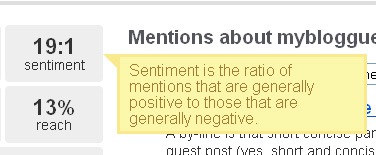


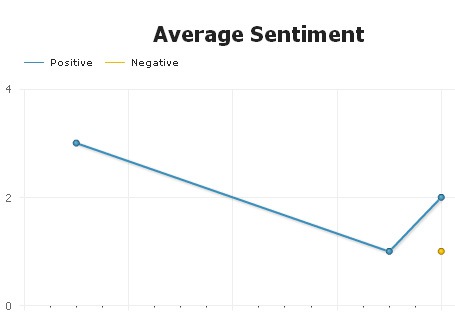
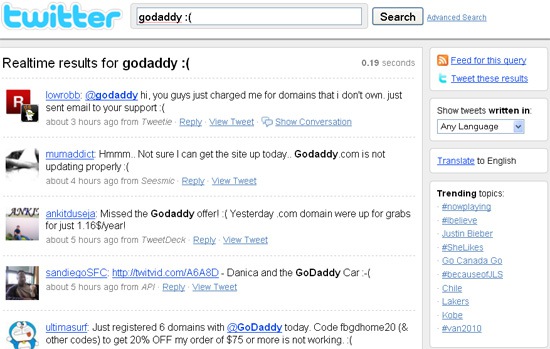
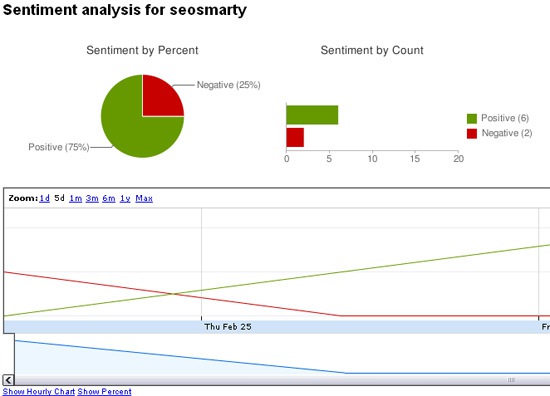
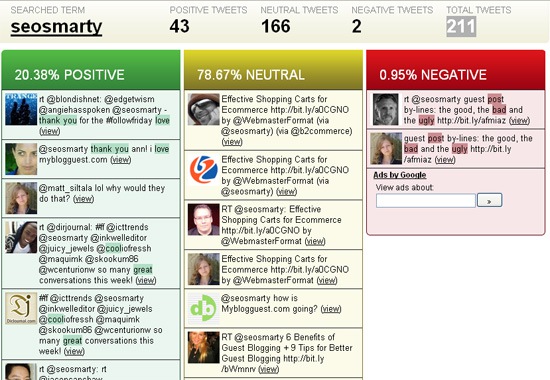
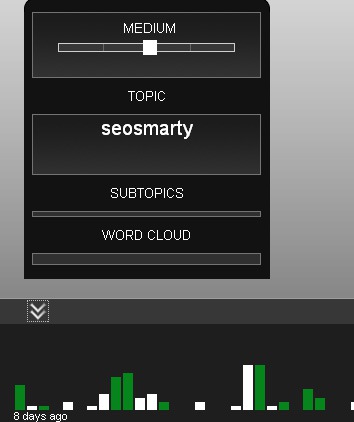
No hay comentarios:
Publicar un comentario